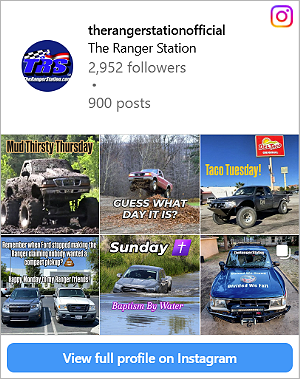outatime88
Well-Known Member
- Joined
- Oct 25, 2014
- Messages
- 63
- City
- California
- Vehicle Year
- 2011
- Transmission
- Manual
- Total Drop
- 3/4
I need help identifying the cause of a rapid clattering noise coming from my '97 2.3 (Lima). I finally found audio of another 2.3 Ranger making the EXACT same sound. Other Youtube comments in their video also ask what is causing it, but no answers. Because others have the same problem I'm thinking it must be something specific.
Other person's Ranger: https://www.youtube.com/shorts/Xg2pd10ZaRo
My Ranger: https://www.youtube.com/shorts/Ah9uMImMoOU
It started after changing the oil after a few months of owning the truck. I can hear it about 30 seconds after cold starting. Its worse when its colder outside. It goes away once I start driving for a few minutes. It also goes away when increasing RPM above idle. If I drive, while warm, and come to a stop and idle for a couple of minutes it comes back but the sound is less rapid. I thought it could be collapsed hydraulic lifters or maybe piston slap? I've tried thicker oil, Lucas stabilizer, Rislone engine treatment, but nothing seems to help. I've also used a stethoscope but its hard to zero in on where its coming from.
Does anyone know what it might be or had it before and was able to stop it?
Other person's Ranger: https://www.youtube.com/shorts/Xg2pd10ZaRo
My Ranger: https://www.youtube.com/shorts/Ah9uMImMoOU
It started after changing the oil after a few months of owning the truck. I can hear it about 30 seconds after cold starting. Its worse when its colder outside. It goes away once I start driving for a few minutes. It also goes away when increasing RPM above idle. If I drive, while warm, and come to a stop and idle for a couple of minutes it comes back but the sound is less rapid. I thought it could be collapsed hydraulic lifters or maybe piston slap? I've tried thicker oil, Lucas stabilizer, Rislone engine treatment, but nothing seems to help. I've also used a stethoscope but its hard to zero in on where its coming from.
Does anyone know what it might be or had it before and was able to stop it?
Last edited:












